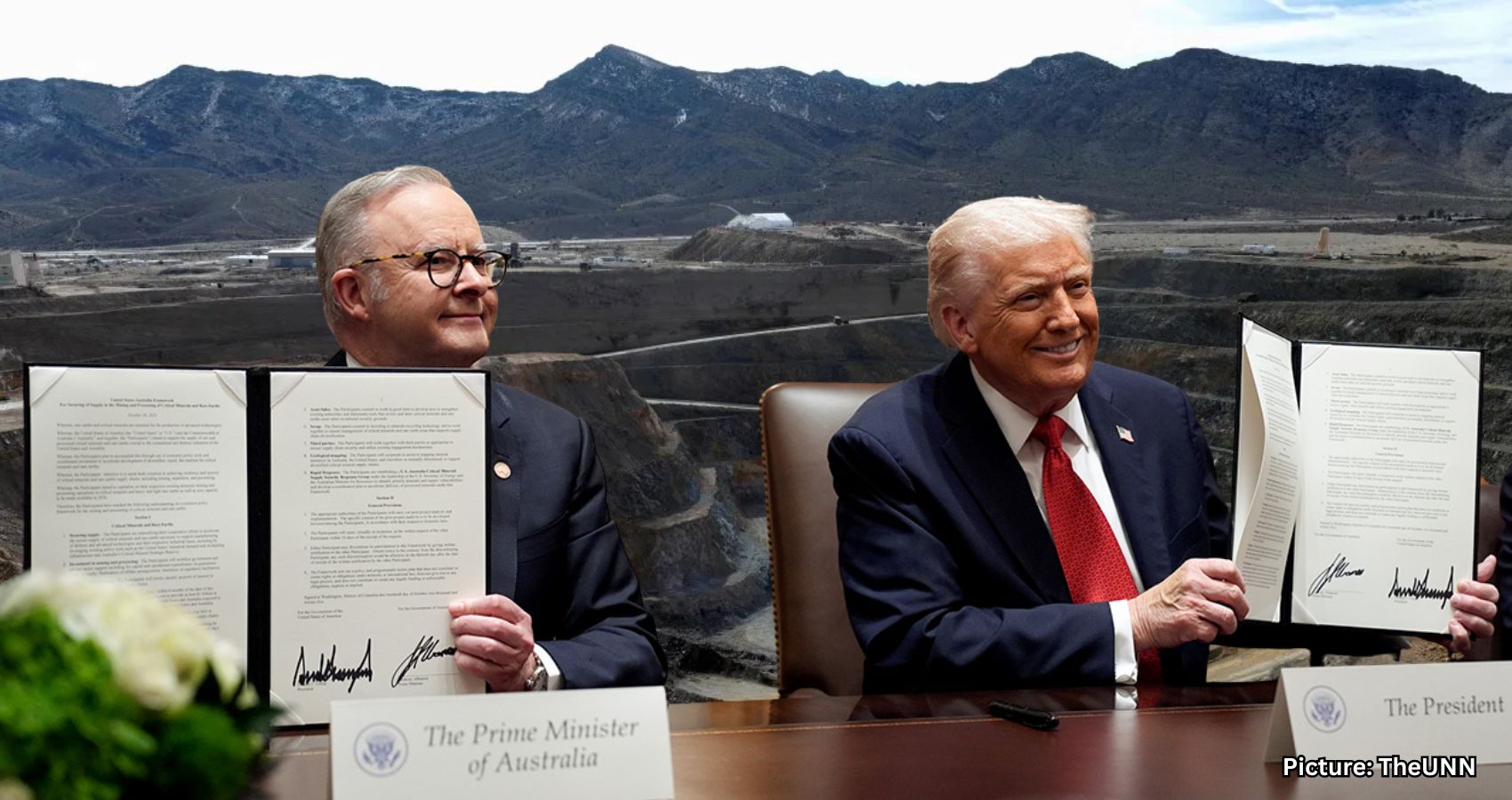The Trump administration is working to reduce China’s dominance in the rare earth minerals market by forming new partnerships with African nations, particularly Tanzania and Angola.
The Trump administration is actively seeking to counter China’s significant control over the rare earth minerals market through strategic partnerships with African nations. The U.S. State Department has indicated that it is focused on mitigating the “national security” risks posed by China’s dominance in this critical sector.
Rare earth elements (REE), which include 17 distinct metals, are essential for both human and national security, according to a 2022 report by the Brookings Institution. These elements are integral to a wide range of technologies, including electronics such as computers and smartphones, renewable energy solutions like wind turbines and solar panels, and national defense systems including jet engines and missile guidance technologies. Notably, China is responsible for approximately 60% of global rare earth extraction and 85% of processing capacity.
While China has secured contracts in various African nations, including the Democratic Republic of the Congo (DRC) for cobalt shipments, the continent is rich in untapped resources. The African Union’s Minerals Development Center recently announced that new specialist rare earth mines are expected to come online by 2029 in countries such as Tanzania, Angola, Malawi, and South Africa, potentially contributing nearly 10% of the world’s supply.
In response to these developments, the Trump administration is making concerted efforts to enhance U.S. involvement in Africa’s mining sector. A State Department spokesperson stated, “The administration’s approach prioritizes partnerships with African nations to ensure their minerals flow west, not east to China.” This shift is part of a broader strategy to address concerns over China’s influence in global mineral supply chains, which the spokesperson described as a threat to both U.S. and African interests.
The spokesperson further elaborated that China’s state-directed strategies exploit Africa’s natural resources, consolidate control over upstream mining assets, and create economic dependencies that undermine regional stability. Currently, the U.S. imports around 70% of its rare earth elements from China, raising alarms about national security risks associated with this reliance.
Senator Jim Risch, the Chairman of the Senate Foreign Relations Committee, emphasized the urgency of addressing this issue. He stated, “Relying on China for critical minerals needed for a modern economy is a top national security risk that President Biden left unaddressed for four years. Under President Trump’s leadership, we can secure new sources in Africa, strengthen our partnerships there, and ensure America’s defense is never dependent on our adversaries.”
The administration is also looking to invest in infrastructure to facilitate the export of minerals from Africa to global markets. A key project in this initiative is the Lobito Corridor, an 800-mile railway designed to connect mineral-rich regions in the DRC and Zambia with Angola’s Atlantic coast, providing easier shipping access to the U.S. The U.S. has pledged a $550 million loan for the development of this corridor.
Additionally, the recent peace agreement between the DRC and Rwanda, facilitated in the Oval Office in June, is expected to enhance access to minerals. The State Department spokesperson noted that this bilateral agreement is intended to pave the way for new U.S. and U.S.-aligned investments in strategic mining projects across the DRC.
Analysts, including Dr. Gracelin Baskaran from the Center for Strategic and International Studies, view these developments as a significant opportunity for the U.S. in Africa. Baskaran remarked, “Africa is the last great frontier of mineral discovery. It has long been undervalued in global mineral exploration, even though it delivers some of the highest returns per dollar invested.”
Baskaran pointed out that Africa’s share of global exploration spending has declined from 16% in 2004 to only 10.4% in 2024. This is particularly concerning given that Sub-Saharan Africa is the most cost-efficient region for mineral exploration, boasting a mineral-value-to-exploration-spending ratio of 0.8, which surpasses that of Australia, Canada, and Latin America.
Despite its vast geological potential, Africa has not captured a significant share of global exploration spending, with countries like Australia and Canada receiving far more investment. Baskaran noted that even nations with established mining industries, such as Zambia and the DRC, have barely begun to explore their mineral wealth, with less than half of their land mapped.
Furthermore, Baskaran highlighted that the U.S. has a unique opportunity to engage in geological mapping and early-stage project development, as China typically focuses on acquiring projects that are already in development or nearing production. This presents a chance for the U.S. and its allies to establish a stronger presence in Africa’s mineral sector.
In terms of specific opportunities, analyst C. Géraud Neema Byamungu from the independent China-Global South Project identified Namibia as a promising alternative to China for heavy rare earth minerals. He pointed to Namibia’s Lofdal project as a significant development in this regard.
The Trump administration’s efforts to forge partnerships with African nations could reshape the landscape of the rare earth minerals market, reducing reliance on China and bolstering U.S. national security interests.
Source: Original article

